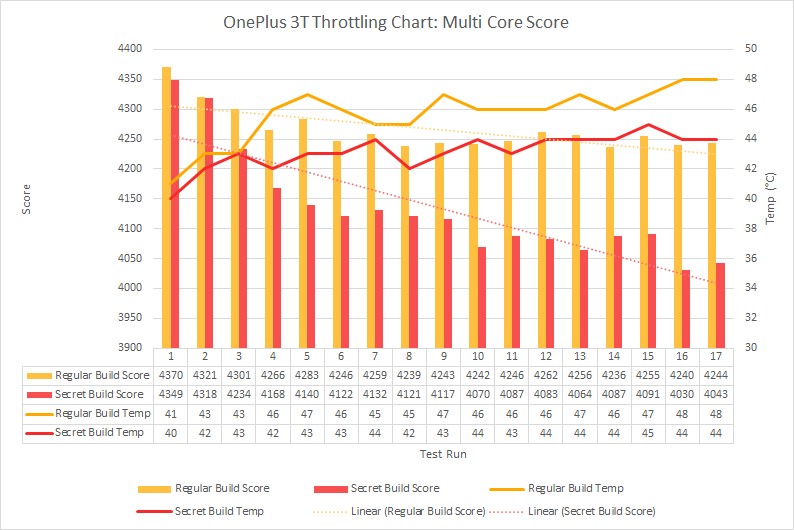A report from XDA revealed recently that OnePlus and Meizu got caught on leaking their benchmarks.
Taking help from Primate Labs, XDA Developers discovered that the three phones are set to artificially increase their CPU performance when running certain benchmarks. This is more than just optimization – the software on the devices specifically looks for a number of widely-used benchmarks and tells the CPU to kick into overdrive whenever they are detected.

It was observed carefully by directly monitoring the CPU activity when regular apps and benchmark apps are run. Evidence of the cheating can also be found in the devices’ firmware, in the form of a hard-coded list of benchmarks: Geekbench, AnTuTu, Androbench, Quadrant, Vellamo, and GFXBench. That means OnePlus 3 and 3T faked the benchmarks with the help of their firmware by blocking the “Bob’s Mini Golf Putt” on Geekbench 4.
Whereas in the case of Meizu Pro 6, the big and high-cores are set to function only when the benchmarks are done on the device. The weird thing is these big cores should be working in any way, but they normally don’t do when running regular apps. So instead of tweaking the processor to work as it’s supposed to (big cores kick in when needed), Meizu programmed the CPU to simulate normal functioning when benchmarks are detected.
And lately after the report, OnePlus confronted that they did fake the benchmarks and said:
“In order to give users a better user experience in resource intensive apps and games, especially graphically intensive ones, we implemented certain mechanisms in the community and Nougat builds to trigger the processor to run more aggressively. The trigger process for benchmarking apps will not be present in upcoming Oxygen OS builds on the OnePlus 3 and OnePlus 3T.”
Again, the report of XDA suspects on other companies might also be rigging up the benchmarks other than OnePlus and Meizu such as HTC, Xiaomi, Huawei, Honor, Google, and Sony. We need to wait for the big faces to be revealed lately.







